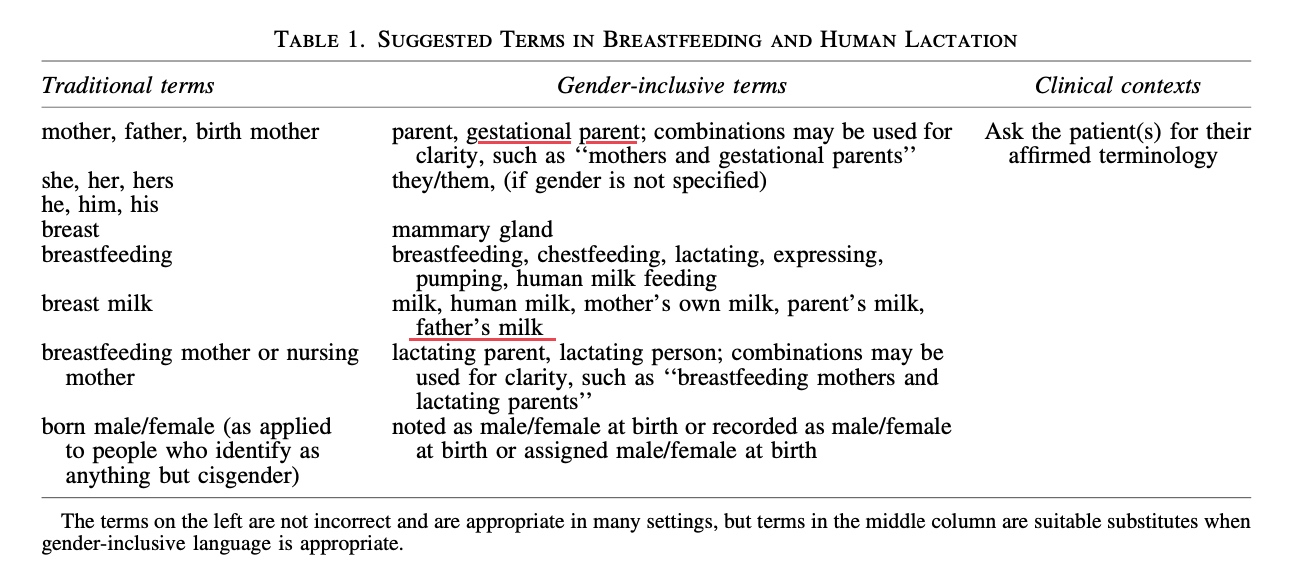The Academy of Breastfeeding Medicine (ABM) is asking US Hospitals to use the term ‘father’s milk’ in new language guide.

The guideline also includes words “chestfeeding,” “human milk feeding,” and “lactating person” to use in place of “traditional terms” like breastfeeding, nursing mother and breast.

The guideline explains:
"ABM recognizes that not all people who give birth and lactate identify as female, and that some individuals identify as neither female nor male. The statement states that to be inclusive to all people in written materials, the use of desexed or gender-inclusive language is appropriate in many settings."
Full Statement and Guideline here.
Previous posts on subject

Public Domain
+++
Love Refuses to Affirm Confusion

